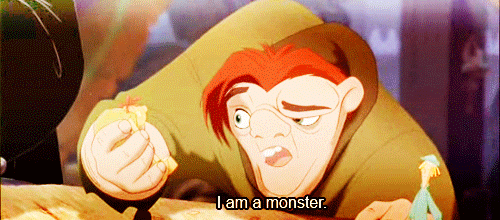There are so many people in need of assistance and we often tend to forget that the people helping us figure out our fractured psyches. They carry the burden of the patients pain and rage long after a session.
Redditor u/bondmemebond wanted to give psychologists a chance to shake it off a bit by asking.... Psychologists/psychiatrists of Reddit, what patients are usually the hardest to work with and why? [Serious]
1-
You know, I've come to think of mental illness as being something like a person being encased in blue glass, when the outside world looks at that person they see them through the glass and so see them as being blue, but when that person looks at the outside world, everything but them is blue. In this way, most mental illnesses have an internal way for the sufferer to conceptualize them and an externalized way of conceptualizing them that projects internal qualities onto surroundings.
A paranoid person generally does not experience themselves as a paranoid person, rather they experience society as conspiratorial and dangerous. In much the same way a depressed person may not experience themselves as depressed, but will externalize that in the form of life being worthless, people being cruel, etc. Often we make a mistake in educating people about mental illness by focusing too much on what it looks like, as opposed to what it feels like from within, and perhaps that makes it harder for people to recognize signs of mental illness in themselves.
So, rather than pick a specific pathology or diagnosis and say that that is the "worst" one, I think it would be more accurate to say that people across all diagnoses who don't or can't recognize that they have a problem and can only project their condition onto their surroundings, always have worse outcomes and will benefit less from interventions. Psychiatrically often times the goal is to tip the scale just enough so that you can enable that shift in someone where they do have the increased self-awareness or objectivity to have that insight.
2-
I know psychiatric nurses who always found the ones with personality disorder really tough. They said there was a lot of manipulation there in conversation, which made it incredibly difficult to know how much progress you were making, if any.
3-
Personally I worked in inpatient mental health facilities and I found the patients with personality disorders the hardest to work with because they can be so manipulative- they can make you feel like you're failing them because you don't care and you're a bad person. I had the insight to recognize that I couldn't personally handle personality disorders and so left that line of work.
I never found patients with paranoia, schizophrenia, bipolar etc too hard to work with because their distrust of you is more understandable- its self preservation.
In personality disorders (e.g. EUPD), patients can make you feel like they trust you and are confiding in you only to turn around and verbally cut you down. I couldn't leave that sh!t at the door, I would go home feeling like I failed them and myself. It was tough. It's also really tough because it's hard to tell if you're making progress, and the feeling that these people will never get better stays with you.
I did a full 180° and I'm much happier cutting out organs now!
4-
Depends on the clinician. I think depressed people with low motivation are the hardest to treat. I love working with people with OCD, but I have colleagues who feel the opposite.
I had a doctor that specialized in OCD and anxiety disorders. I saw him for general anxiety disorder and panic disorder.
I was extremely motivated and with his help (and medication), I was able to graduate from therapy in about 4 or 5 months. I owe my quality of life to him and think about him often even though he treated me 3 years ago.
5-
Psych nurse here. Staff splitting, really getting personal in their verbal attacks on you, always looking for an edge. And often they are my favorite patients, too, because they can be great. But it's hard. If a schizophrenic calls me an ugly witch, eh well, no big deal. If someone with a personality disorder calls me an ugly witch, it's usually followed up with minute details, often something I'm self conscious about. We're human too, it's hard to ignore.
6-
Those who benefit from their disease in my experience, for example Munchausen. They tend to get to the point where they don't like where they are in life (for example loneliness), so they get help, then realize that if their life will improve, the help will disappear. They don't want that. So they start playing a game of cat and mouse. Throwing little breadcrumbs saying things are going better, only for it to magically become worse again.
In which this pattern repeats multiple times. You usually notice somewhere halfway treatment cause no progress is made.
As opposed to my colleagues here, I do not find those with Borderline to be that particularly difficult. You just gotta be very upfront with them. One interaction with a client of mine went as followed: "stop lying to me Karen and tell me what really is up" - "yea yea... I know... I know... "
7-
My mom had a hard time with people who had borderline personality disorder. These people are very insecure and can treat you badly in their efforts to seem superior and well-adjusted. Yet when you set limits or call them out, they get defensive and often angry. Some will even act out by harming themselves or others.
Borderline personality disorder is generally regarded among psychiatrists as very difficult to help someone with. Not recommended for inexperienced doctors.
8-
Help Rejecters are the toughest in my opinion. They might even cognitively understand their predicament, they know you are trying to help, and they start out seeking help but then reject it. Then the cycle begins again. It requires a lot of energy and time investment to show them how genuine you are, and even then it doesn't always lead to a positive outcome.
9-
Borderline personality disorder (though I have only worked with them as parents of my actusl patients) If you can even get them to show up to the appointments, they usually have very little capacity to reflect on their own actions and how it affects how other people react to them, usually blame everything on everyone else, take zero responsibilities for their actions and demand an awful lot of you in terms of "fixing" their kids.
10-
A lot of people mentioned people with personality disorders- especially borderline, as patients they find difficult. I have found them much easier after attending an APA conference a couple years ago where a speaker was describing how for people with borderline everything can feel very unsure and chaotic and all their emotions feel very intense.
The speaker really liked the "emotion disregulation disorder" instead of borderline because it was actually explaining something about it. Thinking about it this way really helped me. Especially as someone who at times met enough to be diagnosed with BPD ( I don't now, it was due to a lot of attachment trauma in my childhood that lots of therapy and secure attachments have solved.
I would say I have a hard time working with patients I can't communicate with well. But it's mostly because I feel like I am being a bad doctor by not being able to connect or be able to work well with what I am able to understand of what is going on for them.
11-
Psychopaths. They have no desire or intent to change their behavior, they don't care about you or others, and they are harmful or even dangerous. There's nothing to empathize with because they have no empathy themselves, and there's nothing to work with.
They are the predator, and everyone else, including you, is the prey.
13-
Borderline, Narcissistic, and Antisocial personality disorders.
My reason for this opinion is that these folks have one pathway that every single stimulus follows as it enters their brain... eyes, ears, taste, all the senses. That pathway goes directly to the place where they try to figure out how to use every situation to get what they want. There is no empathy. There is no concern for others. There is no genuine humanity. There is only "I want" repeated over and over.
The impulse is virtually impossible to treat because the treatment effect goes to the same place. Some believe that Dialectic Behavior Therapy can work. I disagree. The pathway remains regardless what anyone does or says. Being held accountable for dysfunctional comments or actions doesn't make a bit of difference. In the end, they go back to their impulse. The only strategy I have seen that works even a smidgen is to teach them how to get what they want without hurting other people. Even then, it is still about getting what they want.
I am quite sure that my colleagues will disagree with this opinion. Remember it is just that... anecdotal and my opinion.
Life and relationships are about give and take, sacrifice and intimacy, love and belonging. To some degree we all want what we want. But we also give of ourselves and cry at the movies and love little children. These integral emotional parts of living aren't possible for some people. It's good to know that before you get involved.
Only my opinion.
14-
Psych ward....
-Some girl thought she was a werewolf and would wander up and down the halls all night howling
-Another girl would walk inside of the toilet, like literally in the toilet, then complain about not being allowed to wear wet socks
-A lot of people wanting to start fights with each other
The main thing I remember was this overwhelming sense that things weren't going to get better for a lot of these people, which made me really sad.
15-
I think the realization that a lot of the people aren't going to get better, voluntarily or not, was really bad. I know there was one kid weaning off his insomnia meds and he would just start singing in the middle of the night. Wild stuff.
16-
This was early on in training but a mandated client had dropped acid before the session and it started coming on while we were talking - he didn't want to be there as it was and was much larger than me (5'0"). Once he got to threatening me for being the reason everything was wrong with the world I ended up needing to get up and leave my own office to get a supervisor. I definitely thought he would hit and/or strangle me if I stayed.
17-
Used to be a therapist at a behavioral health hospital. I had some patients who genuinely scared me in theory, but nothing ever happened with them. I was significantly attacked twice at work. Both patients were young women. Neither of them "scared" me beforehand. Both were incredibly quiet, withdrawn, and unassuming. One strangled me with my keys- my lanyard was a breakaway for that very reason, but she had tried to steal them several times that shift in attempt to escape the building and run into traffic, so I stupidly knotted off the breakaway portion. We carried panic buttons on the lanyards and I was able to press it while being strangled with it.
The other attack occurred when I was fairly new and on a low-security unit, in view of other staff. I was walking away from the patient and she grabbed me by my hair, pulled me to the ground, and dragged me for several feet down the hallway where she began kicking me in the chest and stomach. She was sent to a higher security unit as a result. I guess I was afraid of her after that, but she wasn't there long. There was law enforcement intervention after she assaulted a pregnant nurse, pulled her to the ground as well, and stomped on her stomach.
18-
The only one I have felt a little scared of was one who threatened to kill me. I knew she meant it. She had already assaulted a number of other staff. She got sent to a higher security ward and I heard she had broke staff's fingers first day she was there.
She held staff and other patients hostage in one of our rooms threatening them but circling the table as if playing with them first. I see violence and aggression regularly and it doesn't phase me but she did. I would purposely avoid eye contact and look straight ahead avoiding her and pretend I wasn't intimidated, as that's what she wanted.
19-
My SO (mental health nurse) tells me that BPD (Borderline Personality Disorder) is very difficult to work with, because while it's a totally legitimate disorder, it often presents as someone being a brat.
20-
I used to work with multi-disabled youth in a school. We had to sign a waiver that we wouldn't press charges or sue or anything the school, the students, or the other staff while working there. I could have sued at least two students (concussion/whiplash/bites/sexual assault...). I left after needing to be taken to the ER a 2nd time.
21-
I am encouraged by some of the new research with psychedelics etc (disclaimer I am not advocating them for anyone, merely saying they look promising in the research) but it is nice to have something new for non-talk/behavior therapy. Metacognitive therapy is also promising as an effective variant of CBT that I have also found compelling. I wish you all the best.
Want to "know" more? Never miss another big, odd, funny, or heartbreaking moment again. Sign up for the Knowable newsletter here.








 Walt Disney Battle Scene GIF by Disney+
Walt Disney Battle Scene GIF by Disney+ frozen GIF
frozen GIF walt disney film GIF
walt disney film GIF pinocchio GIF
pinocchio GIF Dog GIF by Disney
Dog GIF by Disney






 Frustrated Keyboard GIF
Frustrated Keyboard GIF Quit Jimmy Fallon GIF by The Tonight Show Starring Jimmy Fallon
Quit Jimmy Fallon GIF by The Tonight Show Starring Jimmy Fallon GIF by BBC Three
GIF by BBC Three Evil Smile GIF
Evil Smile GIF
 @catnipstb/TikTok
@catnipstb/TikTok @catnipstb/TikTok
@catnipstb/TikTok @catnipstb/TikTok
@catnipstb/TikTok @catnipstb/TikTok
@catnipstb/TikTok @catnipstb/TikTok
@catnipstb/TikTok @catnipstb/TikTok
@catnipstb/TikTok @catnipstb/TikTok
@catnipstb/TikTok @catnipstb/TikTok
@catnipstb/TikTok @catnipstb/TikTok
@catnipstb/TikTok @catnipstb/TikTok
@catnipstb/TikTok @catnipstb/TikTok
@catnipstb/TikTok @catnipstb/TikTok
@catnipstb/TikTok @catnipstb/TikTok
@catnipstb/TikTok @catnipstb/TikTok
@catnipstb/TikTok @catnipstb/TikTok
@catnipstb/TikTok
 @sydneydavisjrjr/TikTok
@sydneydavisjrjr/TikTok @sydneydavisjrjr/TikTok
@sydneydavisjrjr/TikTok @sydneydavisjrjr/TikTok
@sydneydavisjrjr/TikTok @sydneydavisjrjr/TikTok
@sydneydavisjrjr/TikTok @sydneydavisjrjr/TikTok
@sydneydavisjrjr/TikTok @sydneydavisjrjr/TikTok
@sydneydavisjrjr/TikTok @sydneydavisjrjr/TikTok
@sydneydavisjrjr/TikTok @sydneydavisjrjr/TikTok
@sydneydavisjrjr/TikTok @sydneydavisjrjr/TikTok
@sydneydavisjrjr/TikTok @sydneydavisjrjr/TikTok
@sydneydavisjrjr/TikTok @sydneydavisjrjr/TikTok
@sydneydavisjrjr/TikTok